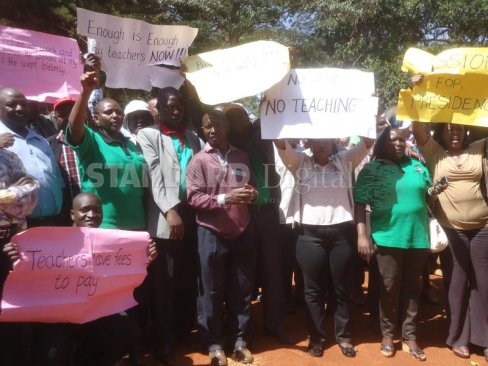
NAIROBI: The Kenyan economy is on the runway battling strong headwinds ahead of takeoff. The control tower is concerned about a prevalent and dangerous tornado called “high wage bill”. The “plane” engines are not powerful enough to move the massive body at a pace that enables it to hit cruise altitude in the desired time. Something has to be done, else we are damned! The public sector is the largest single employer in Kenya with about 680,000 employees in 2014. Of these, teachers comprise more than 275,000 (about 40 per cent of public sector).
Public service sector comprises: The core civil service, disciplined forces, Judiciary, Public Service Commission, public universities, local authorities, parliamentary service, State corporations, counties, and Teachers Service Commission.